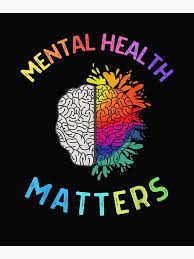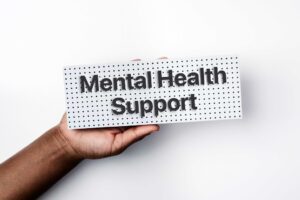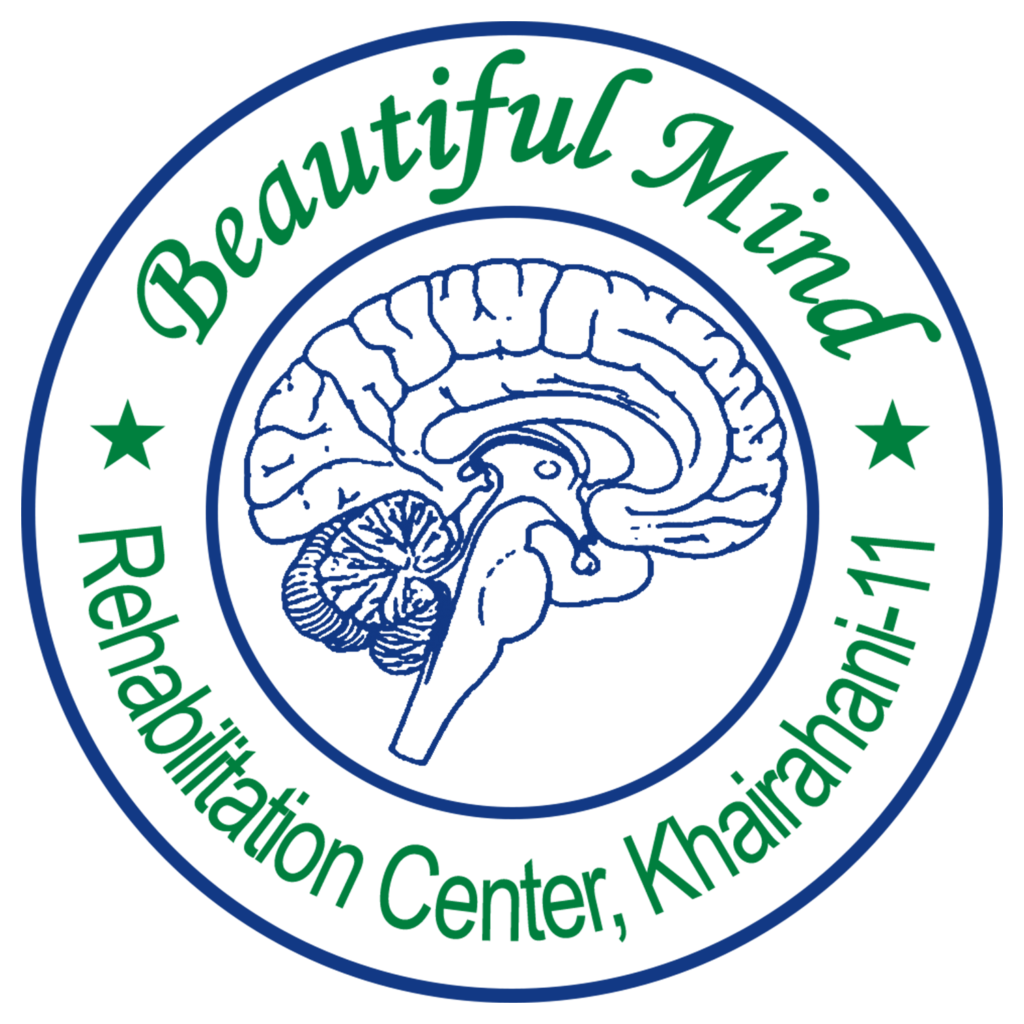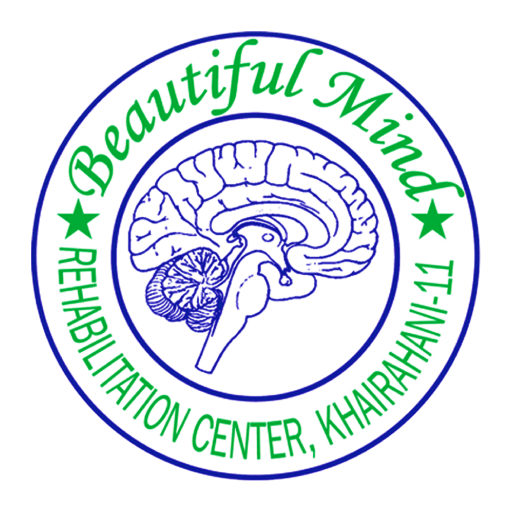Mental Health Awareness in Nepal: Breaking Stigma, Building Support
By Beautiful Mind Institute of Psychiatry – Chitwan, Nepal
Introduction – Why This Conversation Matters – Mental Health Awareness in Nepal
Mental Health Awareness in Nepal: For decades, mental health in Nepal has lived in the shadows. While physical illnesses are openly discussed and treated, emotional and psychological struggles have often been hidden behind closed doors. The result? Silence, shame, and lost opportunities for healing.
At the Beautiful Mind Institute of Psychiatry, we believe it’s time for change — a time to replace stigma with compassion, and fear with knowledge. Mental health is not a luxury; it’s a foundation for living a meaningful life.
In this guide, we’ll explore the reality of mental health in Nepal, the impact of stigma, and how individuals, families, and communities can join hands to build a supportive environment for those in need.

1. Understanding Mental Health in the Nepalese Context
Nepal’s diverse geography, rich cultural heritage, and complex social fabric influence how mental health is perceived and addressed.
- Urban vs Rural Divide: Cities like Kathmandu and Pokhara are beginning to see more awareness campaigns, but in rural areas, access to services is limited.
- Cultural Beliefs: In many communities, mental illness is still associated with superstition, spiritual punishment, or family shame.
- Generational Differences: Younger generations, especially students and professionals, are more open to discussing mental well-being than older generations.
At its core, mental health refers to emotional, psychological, and social well-being. It affects how we think, feel, and act — and it’s just as important as physical health.
2. The Stigma Problem – Why People Stay Silent
Despite progress, stigma remains the biggest barrier to mental health care in Nepal. Stigma can be:
- Social – People fear being judged or excluded if they admit to struggling.
- Self-imposed – Internalized shame makes individuals hide their pain.
- Structural – Lack of supportive laws, workplace policies, or school programs.
Real-life example: A young teacher from Chitwan delayed seeking help for depression for over two years because she feared losing her job. By the time she reached us, her condition had worsened, making recovery longer and harder.
3. The Consequences of Ignoring Mental Health
Untreated mental health conditions have ripple effects:
- Personal Impact: Prolonged stress, burnout, substance abuse, suicidal thoughts.
- Family Strain: Misunderstandings, financial burdens, strained relationships.
- Community Loss: Reduced productivity, increased healthcare costs, social instability.

4. Breaking the Stigma – A Step-by-Step Approach
At Beautiful Mind Institute, we’ve seen that change is possible when communities take small but steady steps:
- Education First – Understanding symptoms, causes, and treatments helps replace myths with facts.
- Positive Role Models – When respected community members share their mental health stories, others follow.
- Open Conversations – Schools, workplaces, and public platforms should normalize talking about mental well-being.
- Media Representation – Responsible reporting and TV/radio discussions can challenge harmful stereotypes.
- Faith & Culture Inclusion – Partnering with local religious and cultural leaders to encourage empathy.
5. The Role of Families in Mental Health Awareness
Families are often the first line of support — or the first barrier. A compassionate family can make all the difference.
- Listen Without Judgment: Avoid dismissing feelings with phrases like “It’s all in your head.”
- Encourage Professional Help: Therapists, psychiatrists, and counselors are allies, not threats.
- Be Patient: Recovery is not instant; relapses may happen.
- Learn Together: Attend awareness workshops or online mental health programs.
6. How Schools & Workplaces Can Lead the Change
Schools can integrate emotional intelligence, stress management, and peer support groups into the curriculum.
Workplaces can offer:
- Employee Assistance Programs (EAPs)
- Mental health days
- Stress management workshops
- Confidential counseling services
When institutions take responsibility, they create environments where people feel safe to seek help.

7. Accessible Support – Where to Get Help in Nepal
Here’s where Beautiful Mind Institute of Psychiatry stands out:
- Holistic Care – Combining psychiatry, counseling, occupational therapy, and lifestyle guidance.
- Confidentiality – Safe, non-judgmental environment for healing.
- Affordable Options – Sliding-scale fees to make care accessible.
- Experienced Team – Psychiatrists, psychologists, social workers, and therapists working together.
Other resources include:
- National Suicide Prevention Helpline: 1166
- Mental health NGOs in Kathmandu, Pokhara, and Chitwan
- Community health posts offering basic counseling
8. Building a Supportive Society – Everyone’s Responsibility
Breaking stigma is not just about treating illness — it’s about creating a culture where mental well-being is valued.
This means:
- Talking openly about mental health
- Encouraging kindness and empathy
- Offering support instead of criticism
- Investing in community-based mental health projects
9. The Beautiful Mind Commitment
At Beautiful Mind Institute of Psychiatry, our mission goes beyond treatment — we aim to empower individuals, educate families, and strengthen communities.
We believe in:
- Early Intervention – Catching mental health issues before they escalate
- Holistic Healing – Treating the mind, body, and spirit together
- Ongoing Support – Helping clients reintegrate into work, school, and society
- Awareness Campaigns – Hosting talks, workshops, and social media outreach programs
Conclusion – From Silence to Support
Mental health awareness in Nepal is growing, but there’s still work to be done. Every conversation we start, every stigma we challenge, and every hand we extend in support brings us closer to a future where no one suffers in silence.
If you or someone you love is struggling, reach out today. Healing begins with a single step — and that step could be a conversation.
🌐 Learn more: https://beautifulmind.com.np/
📍 Visit Us: Khaireni-11, Gaidaha, Parsa, Chitwan, Nepal
📞 Call Us:
- +977-98550945843 (Hira Ale Magar)
- +977-9855094582 (Ansuda Poudel)
- +977-9855094584 (Kamal Sharma Bhusal)
FAQs About Depression in Nepal – Beautiful Mind Institute of Psychiatry
1. What is depression?
Depression is a serious mental health condition that affects how you feel, think, and behave. It goes beyond normal sadness — it can cause persistent feelings of hopelessness, loss of interest in activities, changes in sleep and appetite, low energy, and difficulty concentrating. Untreated depression can interfere with work, relationships, and daily life, but it is highly treatable with the right care.
2. What causes depression?
Depression can have multiple causes, including:
- Biological factors: Brain chemistry imbalance, genetics, hormonal changes.
- Psychological factors: Negative thinking patterns, unresolved trauma, chronic stress.
- Social factors: Isolation, financial hardship, lack of support.
Often, it’s a combination of these factors rather than one single cause.
3. How common is depression in Nepal?
Depression is one of the most common mental health issues in Nepal, affecting people of all ages. The World Health Organization estimates that around 4–6% of Nepal’s population experiences depression at any given time, but actual numbers may be higher due to underreporting and stigma.
4. What are the symptoms of depression?
Common symptoms include:
- Persistent sadness or emptiness
- Loss of interest in activities
- Fatigue or low energy
- Changes in sleep or appetite
- Difficulty concentrating
- Feelings of guilt or worthlessness
- Thoughts of death or suicide
If these symptoms last more than two weeks, professional help is recommended.
5. How is depression diagnosed?
Diagnosis involves a detailed evaluation by a qualified mental health professional, including:
- A thorough clinical interview
- Mental status examination
- Assessment of symptom patterns and duration
- Rule-out of physical conditions like thyroid problems or vitamin deficiencies
6. Can depression be treated?
Yes. Depression is one of the most treatable mental health conditions. Effective treatments include psychotherapy (such as CBT), medications (like antidepressants), lifestyle changes, and sometimes advanced therapies such as electro sleep therapy or biofeedback.
7. What treatments are available at Beautiful Mind Institute of Psychiatry?
We provide:
- Psychiatric evaluation & medication management
- Evidence-based psychotherapy (CBT, interpersonal therapy, trauma-informed care)
- Advanced therapies (biofeedback, electro sleep therapy)
- Holistic programs (yoga, mindfulness, occupational therapy)
- Family counseling to strengthen support systems
8. Is depression just sadness?
No. Sadness is a temporary emotion, while depression is a medical condition that persists for weeks or months, affecting overall functioning. You can’t simply “snap out of it” — it requires treatment and support.
9. Can depression go away on its own?
Mild depression may improve without treatment, but moderate to severe depression usually requires professional intervention. Early treatment leads to faster recovery and lowers the risk of recurrence.
10. Are medications necessary for depression?
Not always. For mild depression, psychotherapy and lifestyle changes may be enough. For moderate to severe depression, a combination of medication and therapy often works best. Our psychiatrists create personalized treatment plans.
11. Is depression a sign of weakness?
Absolutely not. Depression is a medical condition, just like diabetes or high blood pressure. It can happen to anyone regardless of strength, character, or willpower.
12. Can physical health problems cause depression?
Yes. Chronic illnesses such as diabetes, thyroid disorders, heart disease, or chronic pain can increase the risk of depression. Treating both physical and mental health is essential.
13. Does exercise help with depression?
Yes. Regular physical activity boosts mood-regulating brain chemicals, reduces stress, and improves energy levels. Even light daily exercise like walking can help.
14. Can diet affect depression?
A balanced diet rich in whole foods, omega-3 fatty acids, and vitamins can support brain health and mood stability. Nutritional deficiencies, especially vitamin D, B12, and folate, may contribute to depression.
15. Is depression genetic?
Genetics can increase susceptibility, but environment, life experiences, and coping skills also play a major role. Having a family history doesn’t guarantee you’ll develop depression.
16. Can children and teenagers have depression?
Yes. Depression in young people may show as irritability, poor school performance, withdrawal from friends, or changes in appetite and sleep. Early support is crucial.
17. Can older adults have depression?
Yes, especially after retirement, loss of loved ones, or chronic illness. It’s not a normal part of aging and should be addressed promptly.
18. What’s the difference between depression and anxiety?
Depression is characterized by low mood and lack of interest, while anxiety involves excessive worry, restlessness, and physical tension. Both can occur together.
19. How long does depression last?
Without treatment, depression can last months or even years. With professional care, many people start feeling better within weeks to months.
20. Can talking to friends and family help?
Supportive relationships are protective, but they’re not a substitute for professional treatment if symptoms are severe or persistent.
21. Is counseling enough for depression?
For mild cases, counseling or psychotherapy alone can be effective. For more severe depression, combining therapy with medication is often best.
22. Can depression return after recovery?
Yes. Recurrence is possible, especially if triggers aren’t addressed. Maintenance therapy and lifestyle changes help prevent relapse.
23. Are there alternative treatments for depression?
Mindfulness, yoga, art therapy, music therapy, and meditation can complement standard treatments. At Beautiful Mind Institute, we integrate such holistic approaches.
24. Can substance abuse cause depression?
Yes. Alcohol and drug misuse can both cause and worsen depression. Recovery from substance use often improves mood.
25. What should I do if I think I have depression?
Reach out to a qualified mental health professional for assessment. Early intervention increases recovery chances.
26. How can family members support a loved one with depression?
- Listen without judgment
- Encourage professional help
- Offer practical support (meals, company)
- Avoid minimizing their feelings
- Learn about depression to reduce stigma
27. Does Beautiful Mind Institute offer in-patient care for depression?
Yes. We provide both residential and outpatient programs, ensuring intensive support when needed.
28. Is depression preventable?
While not all cases can be prevented, maintaining healthy relationships, managing stress, staying physically active, and seeking early help can reduce the risk.
29. Where is Beautiful Mind Institute of Psychiatry located?
We are located at Khaireni-11, Gaidaha, Parsa, Chitwan, Nepal.
📞 Contacts:
+977-98550945843 (Hira Ale Magar)
+977-9855094582 (Ansuda Poudel)
+977-9855094584 (Kamal Sharma Bushal)
🌐 Website: https://beautifulmind.com.np/
30. How do I book an appointment?
You can call our numbers, visit our website, or come directly to our center. Our team will guide you through the process and match you with the right specialist.

















